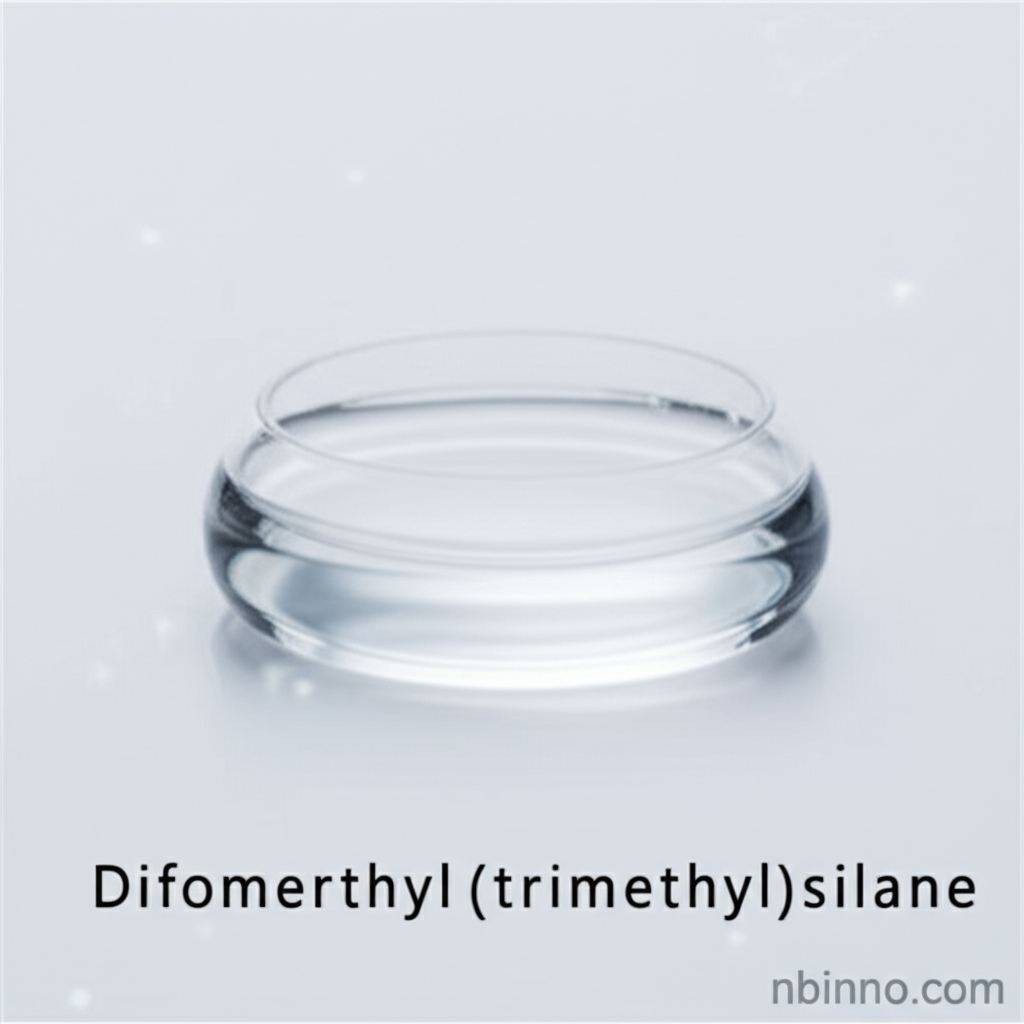Unlock Advanced Synthesis with (Difluoromethyl)trimethylsilane
Discover the essential properties and wide-ranging applications of (Difluoromethyl)trimethylsilane, a crucial reagent for modern chemical innovation in pharmaceuticals, materials science, and beyond.
Get a Quote & SampleProduct Core Value

Difluoromethyl(trimethyl)silane
As a leading supplier in China, we offer (Difluoromethyl)trimethylsilane, a vital organosilicon compound instrumental in synthesizing advanced fluorinated materials. Its unique ability to introduce fluorine atoms enhances the chemical stability and thermal resistance of resulting compounds, making it indispensable for applications in electronics and the automotive sector. We pride ourselves on providing high-quality chemical synthesis building blocks that drive innovation for our clients worldwide.
- Explore the benefits of using difluoromethyltrimethylsilane applications in your next project.
- Discover how this organosilicon compound facilitates superior fluorinated materials production.
- Learn about the critical role of difluoromethylation reagent benefits in modern chemistry.
- Understand the impact of advanced materials science chemicals on various industries.
Advantages of Using This Chemical
Enhanced Material Properties
Leverage the power of fluorination for improved chemical stability and heat resistance, crucial for developing high-performance materials.
Versatile Synthesis Reagent
Utilize this compound as a key building block in pharmaceutical synthesis, facilitating the creation of novel drug candidates with improved bioactivity.
Surface Modification Capabilities
Benefit from its use in surface modification, enhancing adhesion and hydrophobicity in various materials for specialized applications.
Key Applications
Fluorinated Compounds Synthesis
This chemical serves as a key reagent in the synthesis of fluorinated organic compounds, which are crucial in pharmaceuticals and agrochemicals.
Silicon-Based Materials
It is employed in the production of silicon-based materials, enhancing properties like thermal stability and chemical resistance, making it valuable in electronics and coatings.
Surface Modification
The compound is used for surface modification in materials science, improving adhesion and hydrophobicity in coatings and polymers.
Organosilicon Chemistry Research
It plays a significant role in organosilicon chemistry research, helping scientists develop new materials with unique properties for various applications.
